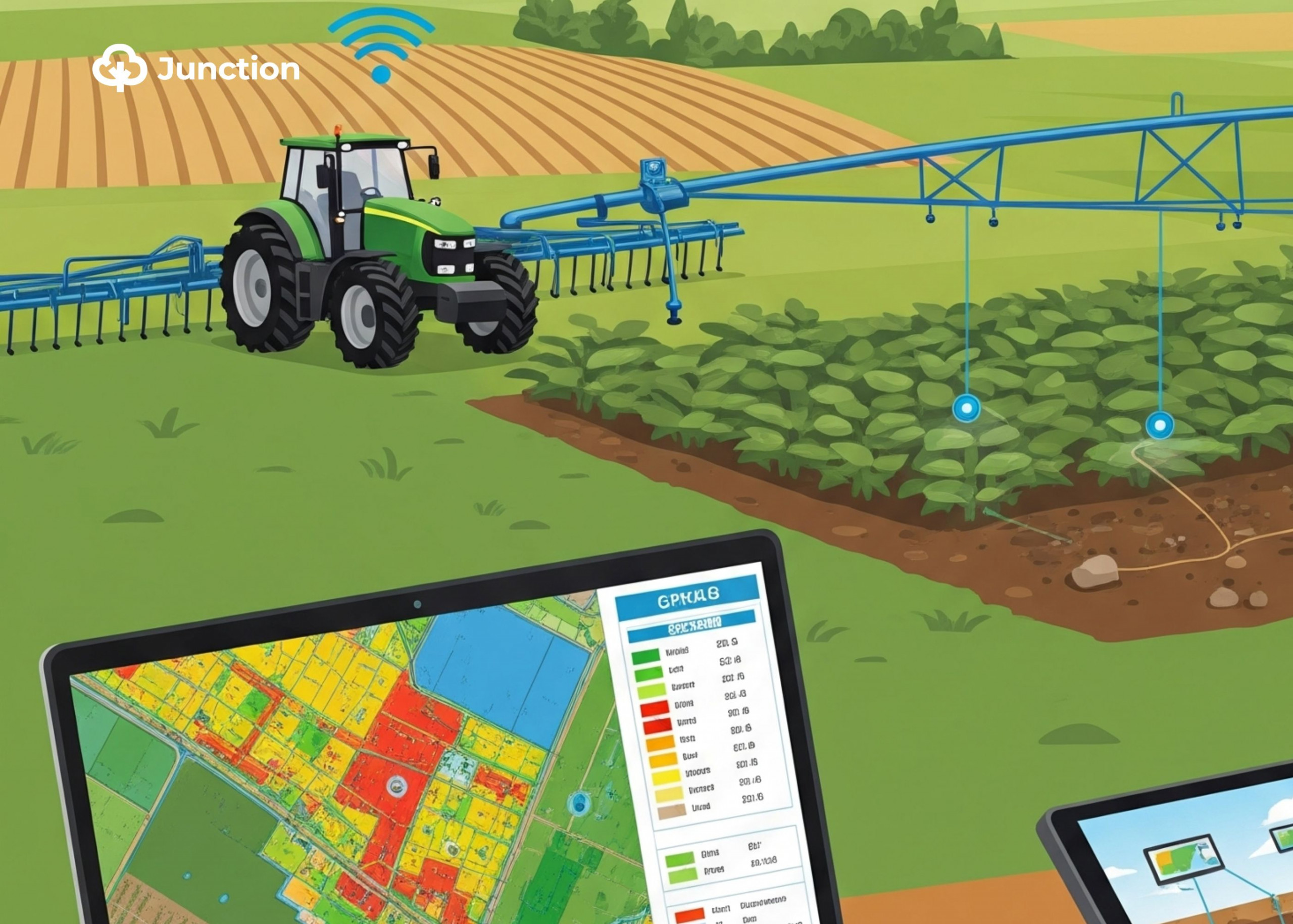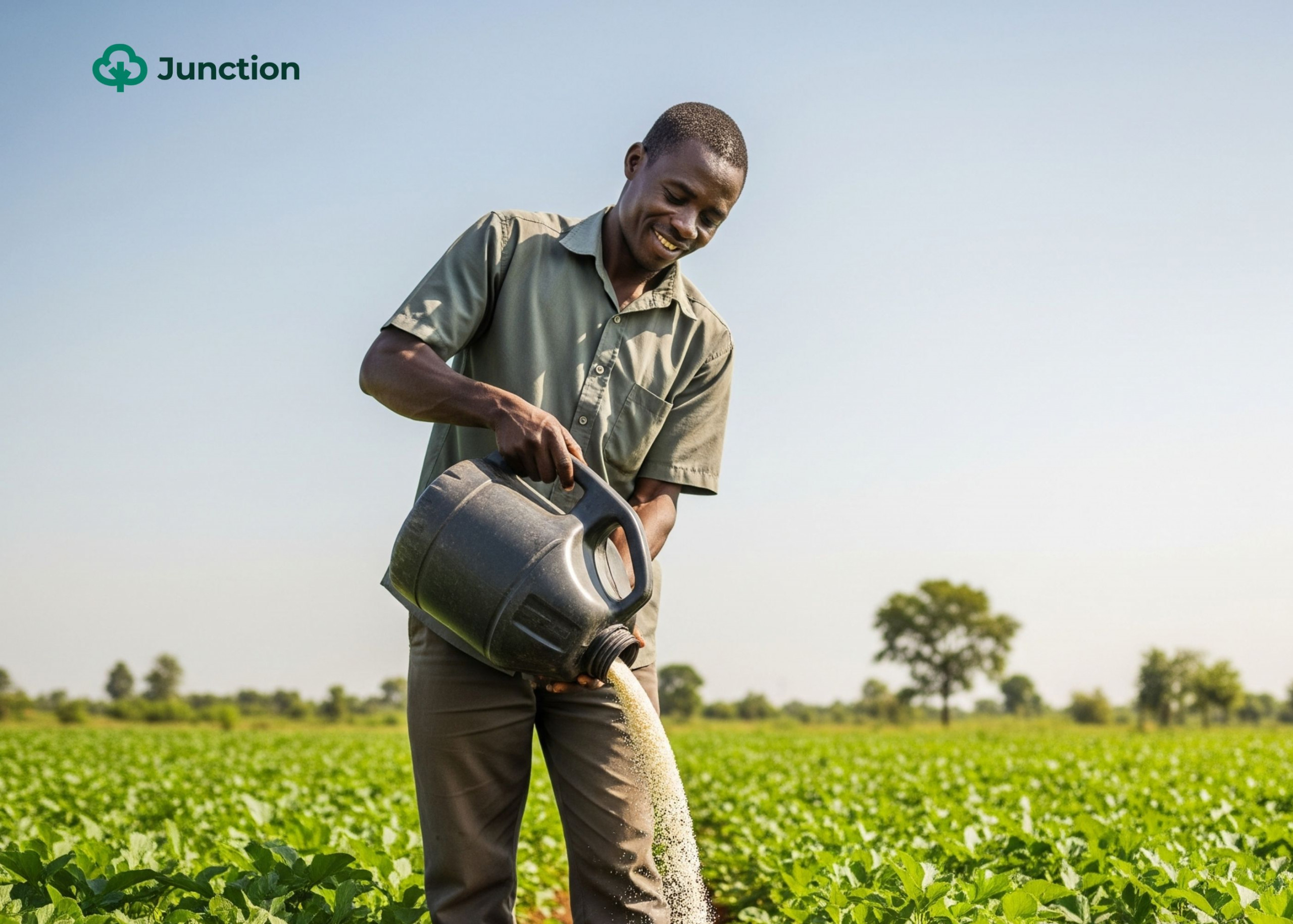Precision farming, also known as precision agriculture, is accepted as a key solution to the numerous challenges facing Nigeria’s agriculture sector. Agriculture experts, policymakers, and industry stakeholders frequently recommend precision farming alongside climate-smart agriculture, artificial irrigation, and AI-driven robotics as pathways to revitalise the country’s agricultural productivity.
Precision farming promises to optimise the use of scarce natural farming resources, such as water and soil nutrients, amidst drought, soil degradation, and climate variability affecting Nigerian farms, thereby improving yields, quality, profitability, and sustainability. Yet, for many Nigerian farmers, especially smallholders who constitute over 70% of the farming population, precision farming still feels foreign, technical, and out of reach.
Admittedly, years ago when it was initially introduced, precision farming sounds like something pulled out of an award-winning scientific research paper born out of years of experimentation in a high-tech laboratory sited in an undisclosed location. However, over the years, better knowledge of the concept has facilitated adaptations for even simple situations like small-scale farming.
This article aims to demystify precision farming by addressing common misconceptions and demonstrating how simple, affordable precision farming practices can be adopted by smallholder farmers in Nigeria.
What is Precision Farming?
Precision farming is a management strategy that leverages technology and data to optimise resource use and tailor farming practices to specific conditions on a farm. The core idea is to optimally apply the dwindling farming inputs, like water, fertilisers, and pesticides, at the right time, in the right amount, and at the exact location needed.
It involves activities such as soil testing, data collection, analysis, and diagnostics, often using tools like GPS, geographic information systems (GIS), sensors, drones, yield monitors, variable rate application equipment, and weather forecasting models. The goal is to increase efficiency, crop yield, and sustainability while reducing waste and environmental impact.
While precision farming may sound like a high-tech concept developed in advanced laboratories, over the years, it has been adapted to suit small-scale and low-resource farming contexts, including those in Nigeria.
Common Misconceptions About Precision Farming in Nigeria
Despite its benefits, many Nigerian farmers hold misconceptions that hinder the adoption of precision farming. Here are five common misunderstandings:
1. Precision Farming Systems Are Too Complex
Precision farming initially seemed complex and intimidating due to the jargon—soil diagnostics, climate sensors, big data analysis—and the perception that it requires expensive, high-end technology. However, the reality is that simple, user-friendly tools are now available.
Portable soil test kits, affordable sensors, and smartphone-compatible software can provide valuable data without requiring advanced technical skills. Moreover, local agricultural extension services, dealers, and training programs are increasingly supporting farmers to understand and implement these technologies effectively.
2. Precision Farming Is Expensive and Only for Large Farms
Full-scale precision farming setups involving GPS-guided machinery, remote sensors, and automated equipment can indeed be costly, which fuels the belief that only large commercial farms can afford them.
However, smallholder farmers with a good grasp of the precision principles can also achieve modest precision farming using low-cost tools such as handheld soil test kits, open-source satellite imagery, free weather apps, and GPS mapping applications.
Combining these with local agronomic advice allows small-scale farmers to implement affordable, scaled-down precision farming systems that improve productivity without heavy investments.
3. Benefits of Precision Farming Are Overstated
Some farmers doubt the real benefits of precision farming, viewing it as a buzzword with exaggerated promises. Yet, numerous studies and practical experiences worldwide demonstrate that precision farming can significantly increase yields, reduce input costs, and improve environmental sustainability.
In Nigeria, pilot projects and case studies have shown that even simple precision techniques, like targeted fertiliser application based on soil tests, can boost productivity by 20-30% while reducing waste and input expenses. Precision farming helps farmers make informed decisions rather than relying on guesswork, which leads to better outcomes.
4. Precision Farming Requires Internet and Advanced Technology Access
Another common misconception is that precision farming demands constant internet connectivity and access to advanced technology, which many rural Nigerian farmers lack.
While some precision tools do benefit from internet access, many technologies function offline or use basic mobile networks. For example, GPS devices and handheld soil sensors do not require the internet. Also, offline data collection apps and local data processing can support precision farming in low-connectivity areas.
Efforts are underway to develop more affordable and offline-compatible precision farming tools suitable for rural Nigeria, making the technology more accessible.
5. Precision Farming Is Only for Tech-Savvy Farmers
Many smallholder farmers believe precision farming is only for those with advanced technical knowledge or education, discouraging adoption.
In reality, precision farming is about applying simple principles of observation, measurement, and targeted input use. Training programs, farmer field schools, and extension services are increasingly bridging the knowledge gap by providing hands-on, practical training tailored to smallholder farmers’ needs. With proper support, farmers of all education levels can successfully implement precision farming practices.
Embracing Precision Farming for Nigeria’s Agricultural Future
Precision farming holds immense potential to transform Nigerian agriculture by enhancing productivity, sustainability, and profitability, especially for smallholder farmers who form the backbone of the sector. These misconceptions about complexity, cost, benefits, technology requirements, and farmer capability have hindered its widespread adoption, and they need to be addressed.
A shift in attitude is important in this agriculture revitalisation journey. Embracing innovation and data-driven farming is crucial for Nigeria’s farmers to overcome current agricultural challenges and secure a prosperous, food-secure future. By understanding that precision farming can be simple, affordable, and accessible, Nigerian farmers can begin to integrate these practices into their operations.
Precision farming is not just for the elite or tech experts; it is a practical, adaptable approach that can benefit every Nigerian farmer willing to learn and innovate. Government agencies, NGOs, agribusinesses, and extension services must continue to provide education, affordable tools, and localised support to empower farmers.



